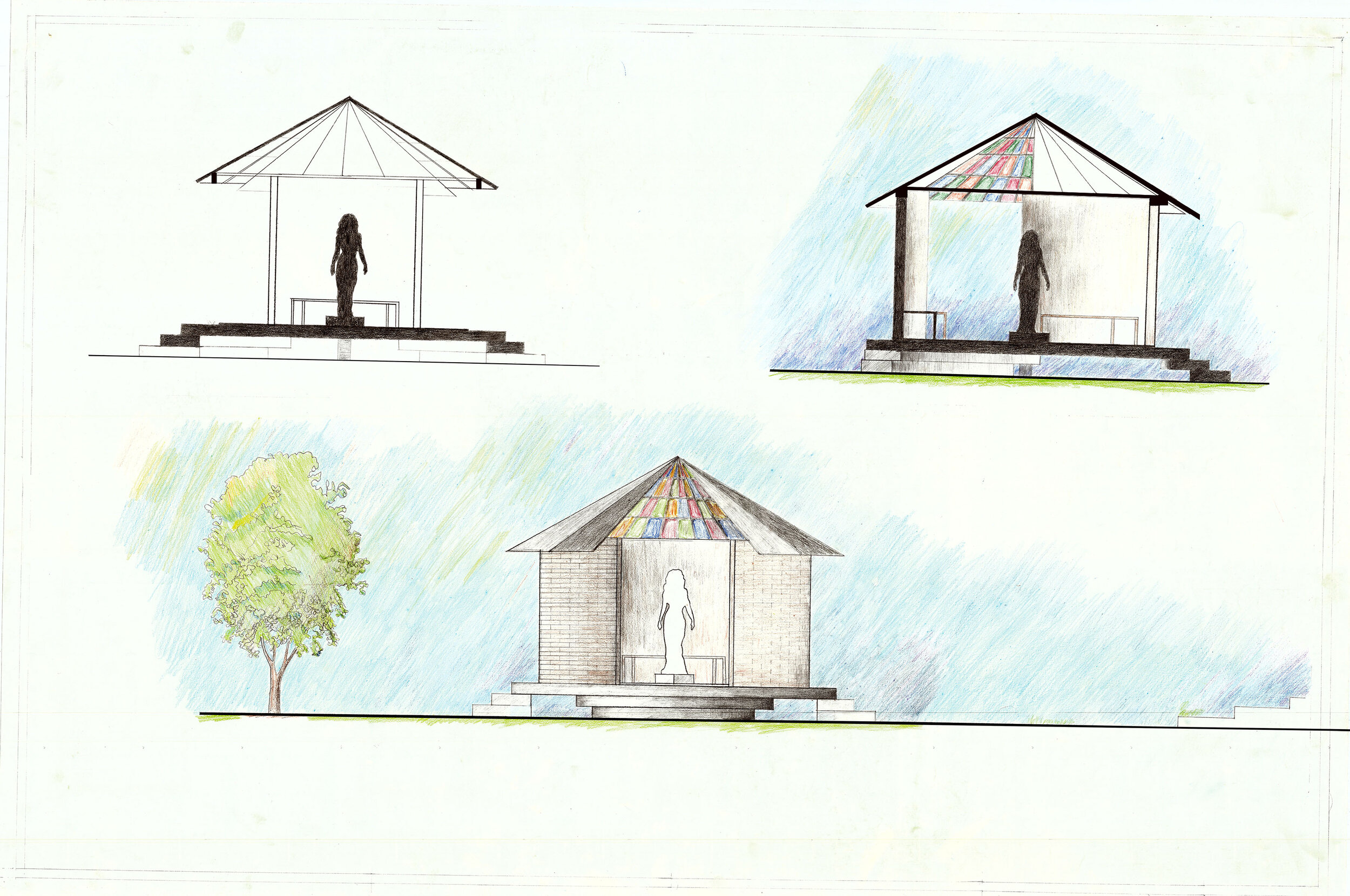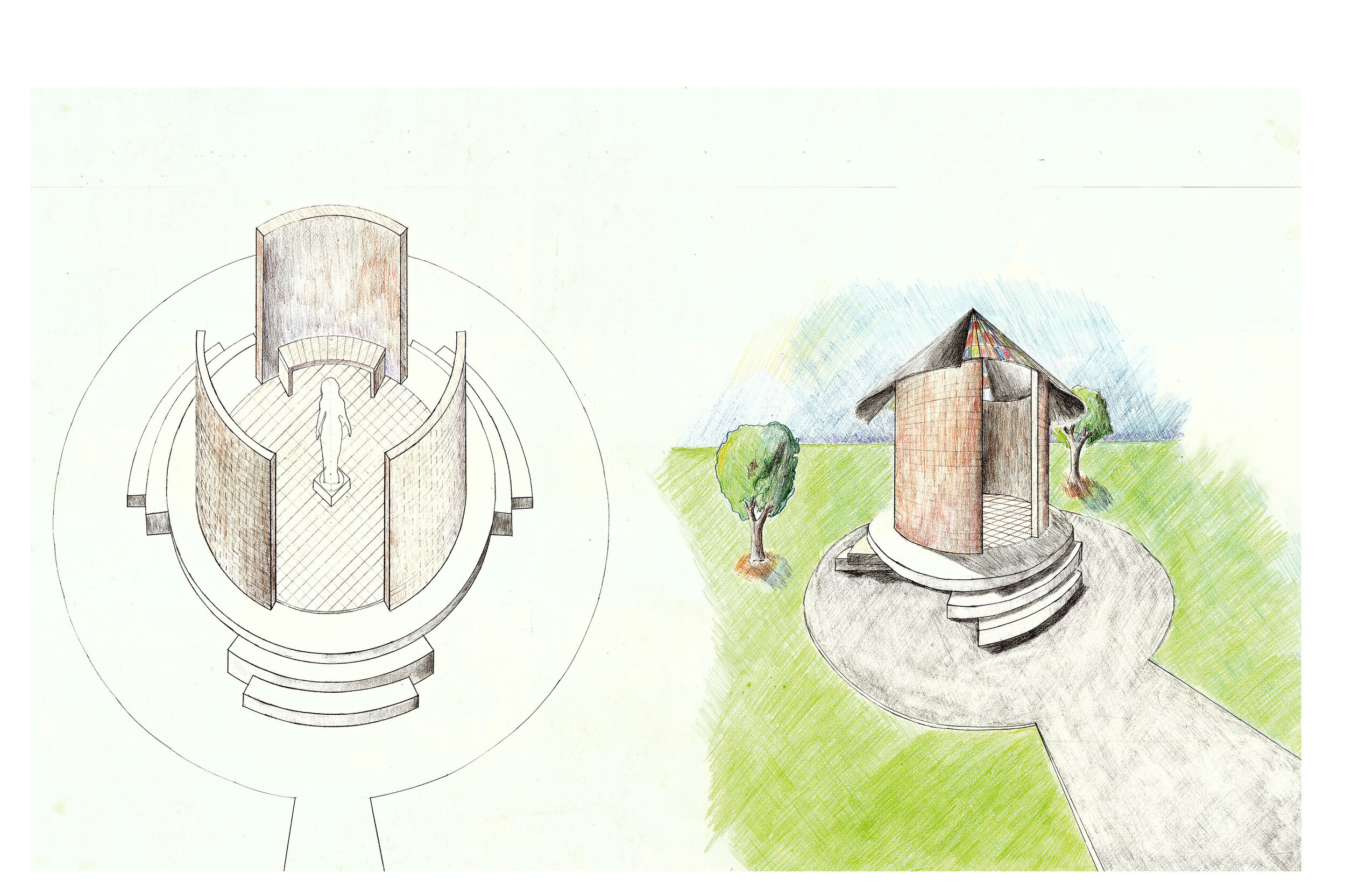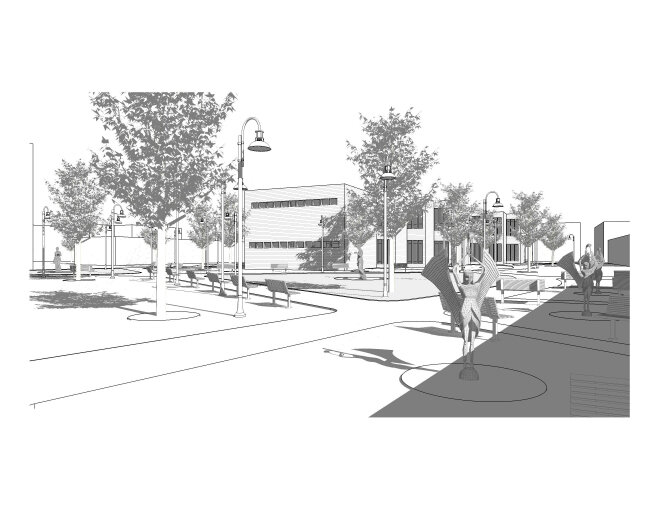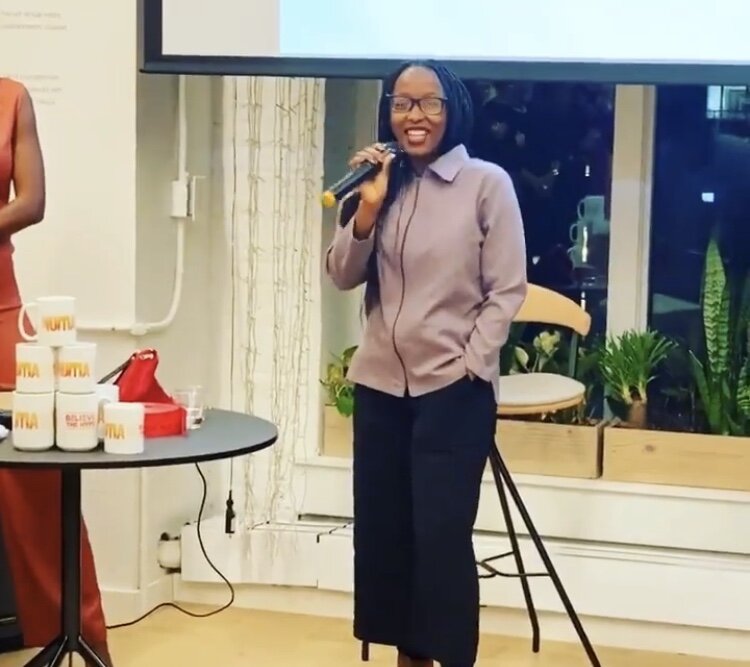MAIMOUNA SOW
Portrait courtesy of Maimouna Sow.
Currently works as a Junior Architect at a High-end Residential Firm
Graduate of SUNY Delhi
Maimouna Sow is currently working as a Junior Architect at a high-end residential firm. She holds a bachelor of “Design and Building” from SUNY Delhi. Her dream is to use her skills to develop high-quality housing back in her home country, Guinea, West Africa. High-Quality Housing that fits the needs of the Guinean people, especially the everyday Guinea woman, both in terms of function and aesthetics. She also hopes to be an agent of change and to empower other young women in Guinea to question the patriarchy.
“Many women in Guinea, especially those still in rural areas are married by the age of 15 and are dependent on their husbands and male family members for almost everything. Sometimes whether they like it or not.” “women are still brought up, in certain parts of Guinea, to be treated like cattle, to reproduce and to be used….To be Disposal.”
She plans on questioning the patriarchy, not just verbally, but with Design and Building. And hopes to inspire and empower other Guinean women in the process.
Creating a Legacy
What is your favorite dish?
Attieke Avec Aloko
What is your favorite song by a Black artist?
It’s Yamore, By Salif Keita
What inspired you to study architecture?
Condos For the Muslim Woman. Photo courtesy of Maimouna Sow.
Initially, my art teacher in high school encouraged me to apply for architecture because he noticed I took great interest in mathematics and art at the same time. I almost went to art school, but I decided I wanted to learn something a bit more practical. Also, as an immigrant, I needed something stable, and reliable. I figured, architecture is creative enough, and this would be a great way to satisfy my love for geometry and my love for art.
Many immigrant kids are pressured to take high-paying and prestigious jobs, especially if you are a Muslim girl who chose to follow a carrier path rather than gets married early (as is standard in my culture). I had to come up with something to show for if I decided not to be a wife and a mother. Recognizing myself as a creative individual, a medical degree or a lawyer, or even an engineer wasn’t something I aspired to be, an Architect was basically the best of both worlds for me.
The idea of leaving a legacy is also a big part of why I studied architecture, and why I'm still in the field. Maybe it's selfish, but I want to be able to point to a building or a map and tell my future daughter, I did that. Leaving a legacy is usually reserved for men, but I want more than just being someone’s grandma.
Name a Black architect/artist who most influenced you as an emerging professional?
I'm still an emerging professional, so I'm still learning from those around me, but to name a few so far are Samantha Josaphat (Studio 397), Roberta Washington (Roberta Washington Architects), and many other women.
I have been inspired by Samantha, just by observing her work with NYCOBA NOMA, her energy, and how she carries herself as a determined leader.
I was inspired by Roberta Washington after hearing about her at NYCOBA, reading about her and her work. I don't know her personally, but reading about her work makes me feel like I can do it because she’s a black woman that accomplished a lot. And she has done literally everything I want to/plan on doing. It's inspiring to see black women win, especially when you’re being told everyday you can’t do it. Women like Roberta Washington are living testaments that someone like me can do it.
Photo courtesy of Maimouna Sow.
Photo courtesy of Maimouna Sow.
Name a favorite project completed by a Black Designer. Why is it your favorite?
My favorite project completed by Black Architect is130 William Street, by Adjaye Associates. There is something about the design that feels organic and modern at the same time.
Mouna Debriefing NYCOBA about the Professional Development Committee at the 2019 Holiday Party. Photo courtesy of Maimouna Sow.
How does your culture affect your studies and the way you design?
Because of the beautiful traditional mud huts found in my hometown in Guinea, I often think about how I can use local, organic elements in my design. How I can invite nature, sunlight, and air into the living spaces. I also can't help but think about safety because of the riots that I’ve witnessed as a kid and often take place in the capital of Conakry every election year. Trying to achieve these concerns together is challenging because they can sometimes have the opposite effect on a space.
Renderings from Maimouna’s school portfolio. Photo courtesy of Maimouna Sow.
5. Are there any organizations that helped you grow in architecture? How did they help you grow?
I would say NYCOBA NOMA, I often say attending an NYCOBA meeting is like attending a yoga class when you’ve been walking around for months in an all-white work environment, surrounded by all-white architects, and the worshiping of old white architects in lectures and book, alienation is a feeling you get used to, a feeling you almost don't even notice until you walk into a room full of smart, accomplished, black architects, designers, and place-makers. This is the time you can relax and let out that breath you didn't even know you were holding.
NYCOBA Members Volunteering at Sag Harbor. Photo courtesy of Maimouna Sow.
Tell us about your involvement with NYCOBA|NOMA. What did you do as Recording Secretary?
I’m currently a member of the NYCOBA NOMA Executive Board. I'm currently holding the Recording Secretary Position. As the recording secretary, it's my job to keep accurate records of NYCOBA Noma meetings. Being a part of the board is also a chance to be in the room when decisions concerning the chapter are being made. I’ve had the chance to learn from great leaders in the past year and will continue to learn from the board for the rest of 2021 as well.



Being Co-Chair of Professional Development Committee, what is the importance of establishing a network to support one another? What is your advice for someone who is trying to network and develop professionally as a student and post-graduate?
As a part of the PD Committee, I’ve planned several events that promote networking and mentorship. I wanted to focus on that because as an emerging professional, you are learning many aspects of the field that you didn't learn in school, the architectural field is vague in that way. There are many things we don't talk about at work, professionalism, and money for example. Networking and mentorship is a great way to learn the things you might not learn at the office.
Mentorship Event By the Professional Development Committee. Photo courtesy of Maimouna Sow.
Cleaning Up Newark NJ With a Local Organization. Photo courtesy of Maimouna Sow.
If you were able to talk to your younger self, what would you say?
I would tell her not to worry, everything will be alright. That she’s making the right decisions and to just keep doing what she's doing, and she's doing great. She doesn't know it yet, but enough black women have done what she plans to do. There's already a template… as scary as it sounds, it's not impossible.
Rendering from one of Maimouna’s job. Photo courtesy of Maimouna Sow.
Master Site plan from Maimouna’s school portfolio. Photo courtesy of Maimouna Sow.
What would you want to say to the next generation of aspiring Black women architects?
“They will talk down to you, or patronize you, or even straight-up insult you. Whatever you do, keep pushing. If you have to push through tears or push hard, or push softly, or take a break, just make sure you keep pushing. I would say, It’s okay to make mistakes, You don't have to be a superhero or magical, you can just be. You’re human, and humans make mistakes. And you’re not any less valuable for making the mistakes you make, just keep trying. And do it in your own voice, your own way.”
Site plan of from Maimouna’s school portfolio. Photo courtesy of Maimouna Sow.













